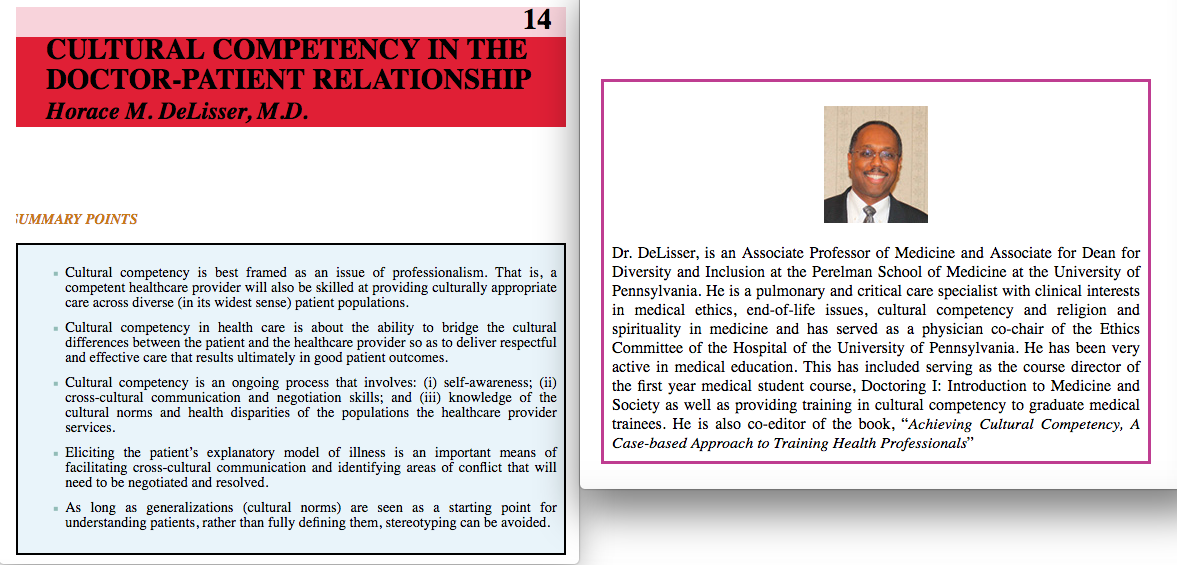Cultural Competency in the Doctor-Patient Relationship-1
December 28, 2025 | RR Baliga, MD, MBA
PodKast: Cultural Competency in the Doctor-Patient Relationship-1 | Dr Baliga's 'Got Knowledge Doc' PodKast for Physicians
Youtube https://youtu.be/ucuq5bPVBs4
Reference
Cultural Competency in the Doctor-Patient Relationship by Horace DeLisser, MD, Associate Dean for Diversity & Inclusion at Perelman School of Medicine, University of Pennsylvania in Baliga's Textbook of Internal Medicine
Summary
Cultural competency is best framed as an issue of professionalism. That is, a competent healthcare provider will also be skilled at providing culturally appropriate care across diverse (in its widest sense) patient populations.
Cultural competency in health care is about the ability to bridge the cultural differences between the patient and the healthcare provider so as to deliver respectful and effective care that results ultimately in good patient outcomes.
Cultural competency is an ongoing process that involves: (i) self-awareness; (ii) cross-cultural communication and negotiation skills; and (iii) knowledge of the cultural norms and health disparities of the populations the healthcare provider services.
Eliciting the patient’s explanatory model of illness is an important means of facilitating cross-cultural communication and identifying areas of conflict that will need to be negotiated and resolved.
As long as generalizations (cultural norms) are seen as a starting point for understanding patients, rather than fully defining them, stereotyping can be avoided.

